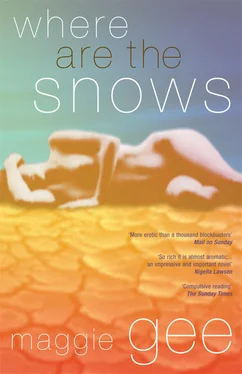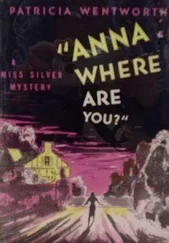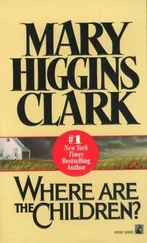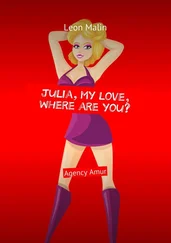We flew in to Lisbon first.
‘It’s the perfect European city, just what you wanted,’ I told her, as we circled above the gentle lights. I held her hand, my love, my wife.
Some things were left. I pointed them out. There were still narrow streets with open windows in which canaries swung in cages, above a brilliant display of petunias, there were still unripe lemons and arum lilies growing round the ruined battlements. The yellow trams had been phased out, but the taxi-drivers were more manic than ever, their pale green roofs flying uphill at twilight like terrified moths escaping hell.
But we had forgotten the earthquake. Worse than the earth-quake of the 1980s. It was stupid, the papers had been full of it, but a year had passed and we had forgotten, the foreground always crowds out the past… Alexandra blamed me for forgetting.
There was a lot of demolition work in the Alfama. The oldest buildings had suffered most. Some of the rebuilding was ugly new brick. Scaffolding clambered everywhere. The streets were full of sand and bricks. The air, which had once smelled of cooking and lemons, now caught at our throats and made us cough — new brick-dust, or disturbed dry rot? The sound of small birds was replaced by hammering.
On our last day we sat in the shade at a round metal table on the cobbles. We had found an alley far away from any builders. The table rocked, and was slightly too small, but the sky was lovely, the orange-pink roofs held their mustardy lichens up to the sun, the washing hanging from every balcony plumed in the wind, as white as sand… I felt nostalgic for our earlier selves, ten years younger, stretched on the beach, I was full of love for Portugal, for my wisdom, for the gin in my hand, first drink of the day well before eleven, so maybe something had already gone wrong.
A hammering; I heard it clearly, some way off, insistent, tinny.
‘Do you remember, when we came to Lisbon before, we saw that little crowd round a dying pigeon?’
— It had been having some kind of fit in the street, convulsing horribly, wings askew. There were children watching and a black-clad old woman who looked so upset I thought she must be worried about the children catching some horrible disease, but she nodded sadly as they tried to touch it. Then a man picked it up, a whirling pecking bundle, and tried to balance it on a low wall. It sat there for a second, suddenly comatose. The man saw us looking and waved his arms at us hopefully, to indicate flight; you could feel the crowd willing the pigeon to fly, but actually it just convulsed again and fell backwards into a tin bowl of geraniums, where it lay still, slumped on its side. The sigh of disappointment was audible, as if the whole scene had been part of an opera.
‘Do you remember how amazed we were at their kindness? That they genuinely cared about a filthy street-bird that Londoners think of as flying rats? — I was thinking, they must miss the birds. Do you notice, there isn’t any birdsong to speak of. The building work must have frightened them away.’
She frowned at me; I was talking too much. She had a hangover, she wasn’t drinking. ‘I remember. They were horribly sentimental. Or perhaps they do it for tourists.’
That hurt. The Portuguese were either sentimental or false, and our younger selves were just tourists.
‘You’re in a bad mood.’
‘You’re ridiculous. Let’s move, that hammering is driving me mad.’
While we talked it had got suddenly louder. Too much black coffee and then too much gin, my heart was thumping, I was afraid, but I knew the day would get better.
Alex loved shopping. She’d always loved shopping. We’d go to a market and stroll and stare and I’d buy her some perfectly chosen object which would show I knew her best in the world.
(Of all the anxiously narrow rituals that hotel life imposed on us, shopping was one of the oddest, though it never seemed so at the time. Alexandra had what’s called ‘an eye for beauty’; in other words, she collected things. Local handicrafts, weaving, carvings, silver trinkets, rocks, shells, rare skins and feathers, pottery, hats… but our suitcases couldn’t carry it all. We left a stream of things behind us, gifts for the maids, who would have preferred money. Every new purchase displaced an old one. She had to have what she wanted, you see. Once we were rich, she had whatever she wanted, and when she got bored, she threw it away.)
We walked to the Feira da Ladre. I didn’t really know what to expect except that it was a famous market where ‘you could buy anything’…
What we found was very far from that. It was on a hill, and open to the air, blazing hot, with a few old trees. There were no actual stalls; the stall-holders just spread blankets on the ground, and their wares on the blankets, so we stared at sloping miles of blankets covered with every kind of object that had ever been made, or dreamed, or broken (most of them were broken), or lost (all of them looked lost). The amazing thing was that they were all on sale — not in Africa, or South America, but here in Portugal, in Europe. There were plaster dogs with one ear missing, plastic shoes, cracked records, an old mangle, old camera-cases, half-used scent sprays, odd buttons, old comics… miles and miles of solidified time, for all of them had fallen out of the past, beached as the tide moved on without them (I was loving it; it excited me; I felt I was looking at some kind of collage, I felt I was being taught something, though I hadn’t understood it yet). The most hopeless blanket was entirely covered with empty tin cans — beer-cans, Pepsi cans, every type of trash sweet drink, gorgeous from a distance, tainted in close-up, mostly the distinctive deep emerald cans of ‘Fria Green’ with which Coco-Cola Inc was flooding the planet now dentists had blown the whistle on Coke. In the sun the tins glittered like punk jewellery, beautiful as a blowfly’s wings. It reminded me of scenes half-glimpsed as we had been driven through third-world countries. But this was Portugal, for heaven’s sake. I had never realised how poor they were.
The curve of the hill was sometimes so steep that you expected everything to slide and go clattering and tinkling down to the bottom; why did it move me? Of course; it made me think of the curve of the earth…
I was so absorbed I forgot about Alex. It was ages since I’d managed to do that; I no longer felt safe enough to forget her, but briefly, there, I did escape. I was following my nose, fascinated, criss-crossing between the narrow aisles, nodding to the thin stall-holders, who smiled at me with a flash of filling, patient faces burnt black by the sun, crouching beside their empire of rubbish. ‘English,’ I said, apologetically, when they started a sales patter in fast Portuguese. ‘Take dollar,’ they said, and I moved on. ‘Take traveller cheque…’ I waved, placating.
The most disturbing things were the most personal; false teeth, outmoded hearing aids, glasses — broken glasses, lensless glasses, an optical nightmare of useless glasses — and not far away, with the bereft false teeth, what looked like an array of children’s dental braces, what use was another child’s dental brace?
All of a sudden I thought of Isaac. As if all the lost things in his absent-minded life had been reassembled here, but he was forgotten. His glasses, his wallet, the dental brace that had made his smile so sad, in his teens…
I stood in the blazing sun and felt cold. It was like looking at a pile of bones, and suddenly the whole landscape shivered and swam in the sun like a field of bones, blinding white, the dreadful remains of some final earthquake.
The sun went in. The moment passed. Nothing had happened, the salesman smiled, he had a daisy in the brim of his hat, the glasses were only glasses again. I realised Alex wasn’t there.
Читать дальше












